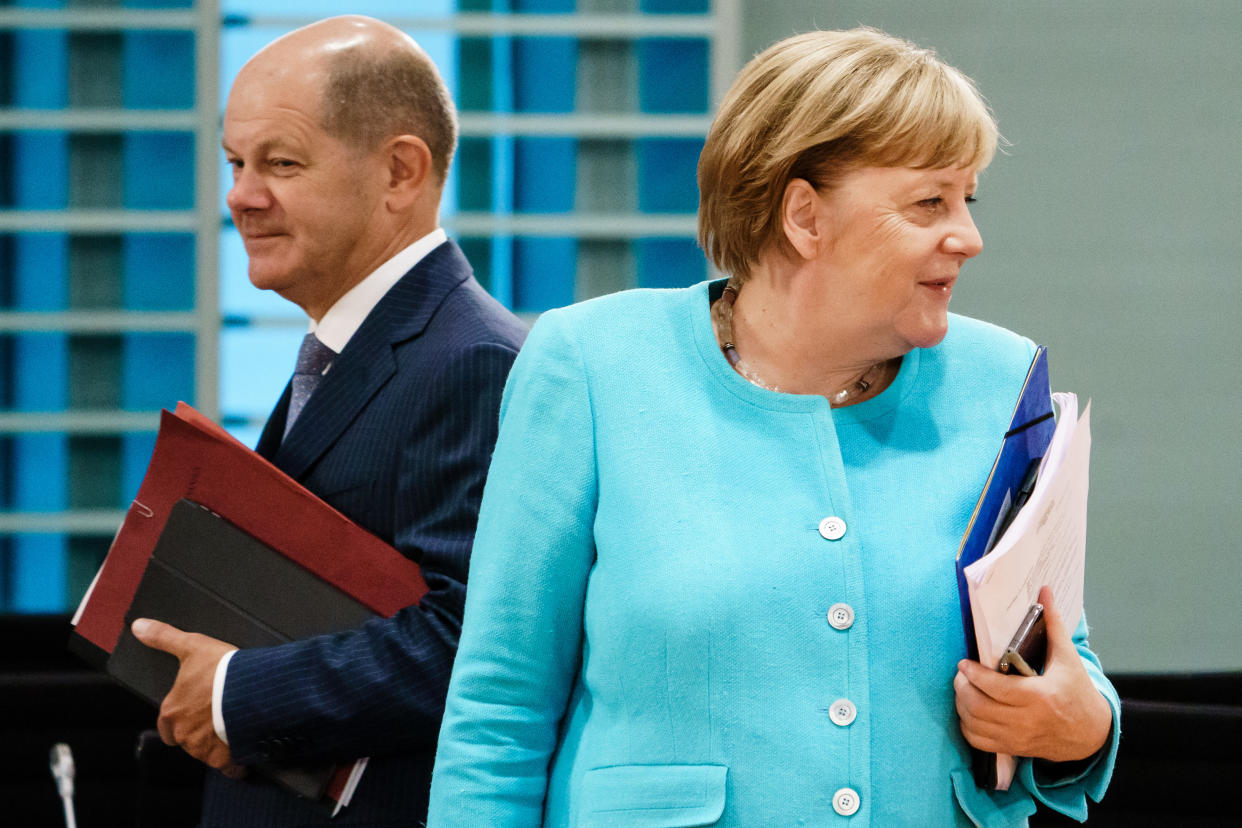Germany to take on €96bn in new debt next year to weather COVID-19 crisis

The German government will suspend its constitutional debt brake for the second year in a row in 2021, in its ongoing efforts to help the economy weather the worst of the COVID-19 crisis.
On Wednesday, the cabinet signed off on a draft 2021 budget, that will enable the government to borrow up to around €96bn (£88bn, $112bn).
The government is borrowing around €218bn this year to finance major stimulus measures to support the economy, after waiving the law that forbade it from taking on new debt in March this year to launch the first of a number of rescue and stimulus packages.
READ MORE: Coronavirus: German economy recovering ‘more favourably’ than expected
Finance minister and vice-chancellor Olaf Scholz, at a press conference in Berlin on Wednesday, said that forecasts from economic institutes already show that economic recovery is now underway in Germany.
“Our hope remains that through the measures we have taken this year and what we are doing next year, we will succeed in maintaining this trend so that we will have reached pre-crisis economic levels by the beginning of 2022, and that we will will have secured as many jobs as possible,” Scholz added.
In August, the government agreed to extend its wage-support scheme until the end of 2021. Called “Kurzarbeit” (short work), the government programme was last deployed during the 2008 financial crisis to avoid mass layoffs and help companies to get staff working again quickly.
The government pays about 60% of a worker’s salary — 67% if they have children — while the employer puts them on reduced hours or sends them home. That amount goes up to 70% of lost wages if people are on short-hours for more than four months, and after seven months, to around 80%.
Watch: What is a recession?
READ MORE: German finance minister to run as chancellor candidate in 2021
“The good financial position that we achieved in recent years has really made it possible for us to act vigorously and decisively in this crisis,” Scholz told reporters in Berlin today.
He had already warned in August that Germany could not “save its way out of the crisis,” and today said that “we are acting decisively, even if it costs a lot of money, because doing nothing would cost our country even more.”
Germany experienced its worst recession in its post-war history this year, with GDP sinking 2% in the first quarter and 9.7% in the second quarter.
The IFO economic institute this week forecast that GDP will contract by 5.2% this year. It predicts growth of 5.1% for 2021, slightly lower than its last-quarter outlook of 6.4%.
The government will return to the debt-brake rule after 2022, but won’t necessarily go back to the supreme austerity of its balanced budget, for which it has often been criticised. The draft budget allows for new debt of €10.5bn in 2022, falling to €6.7bn in 2023 and further to €5.2bn in 2024.


